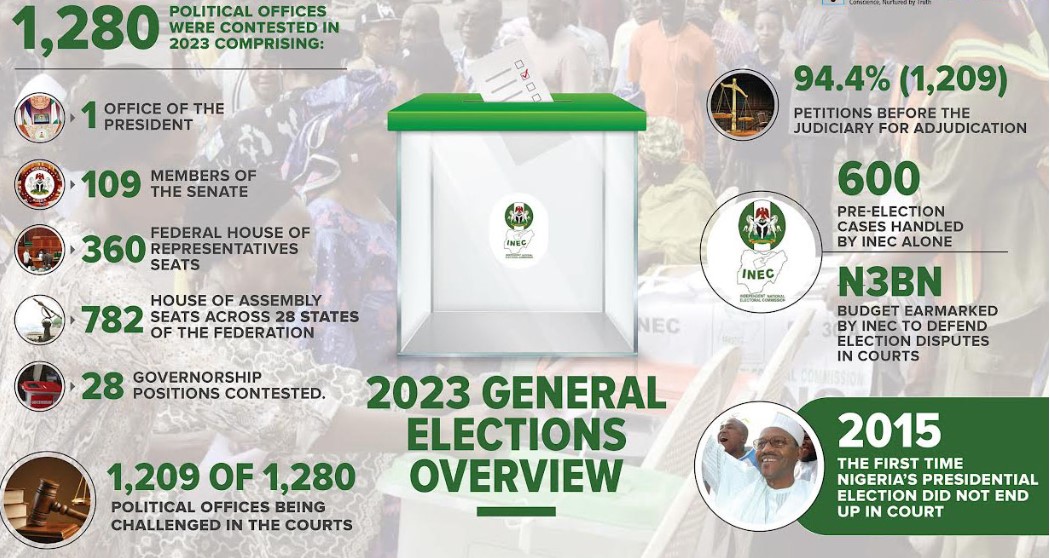The aftermath of Nigeria’s recent general elections has raised serious concerns about the credibility of the Independent National Electoral Commission (INEC) and the country’s electoral processes. A staggering number of election petitions have been filed, further eroding public trust in the electoral system.
Out of 1,280 political offices contested in the 2023 elections, a staggering 1,209 petitions have been filed for judicial adjudication. This means that nearly 95% of the contested positions are awaiting court decisions. Only 71 offices, representing a meager 5.55%, were truly decided by the citizens through the ballot.
The trend of election outcomes being determined by court orders has persisted since the return of civil rule in 1999. The situation raises concerns about the extent to which the electorate can influence the choice of their leaders, as the responsibility is increasingly shifted to the judiciary.
Stakeholders and legal experts attribute this crisis to various factors, including politicians’ refusal to accept electoral defeat, the legal culture of do-or-die politics, and inadequate trust in the electoral system’s integrity. Lawyers and politicians often encourage litigations, even when the chances of success are low, contributing to the legal logjam.
March 11 Polls: Confusion Over INEC’s One Week Extension of State Elections
Critics also point to issues within INEC. The electoral body’s inability to effectively manage and conduct elections has fueled disputes. INEC officials, at times, make misleading statements about electoral laws and the deployment of technology, further confusing the political landscape.
The high number of election disputes has put immense pressure on the judiciary, with judges handling hundreds of cases. This pressure is not conducive to delivering timely and effective justice.
To address this crisis, experts recommend a series of reforms, beginning with INEC’s independence and capacity. The need for politicians to accept electoral outcomes gracefully, legal practitioners to discourage frivolous litigations, and improved education on electoral laws is also emphasized.
Ultimately, Nigeria’s democratic system faces a credibility crisis that threatens the very foundation of its elections. Solving this issue will require a coordinated effort involving INEC, politicians, legal professionals, and the electorate, all working together to restore faith in the democratic process.
Follow us on Facebook
Post Disclaimer
The opinions, beliefs and viewpoints expressed by the author and forum participants on this website do not necessarily reflect the opinions, beliefs and viewpoints of Anaedo Online or official policies of the Anaedo Online.

